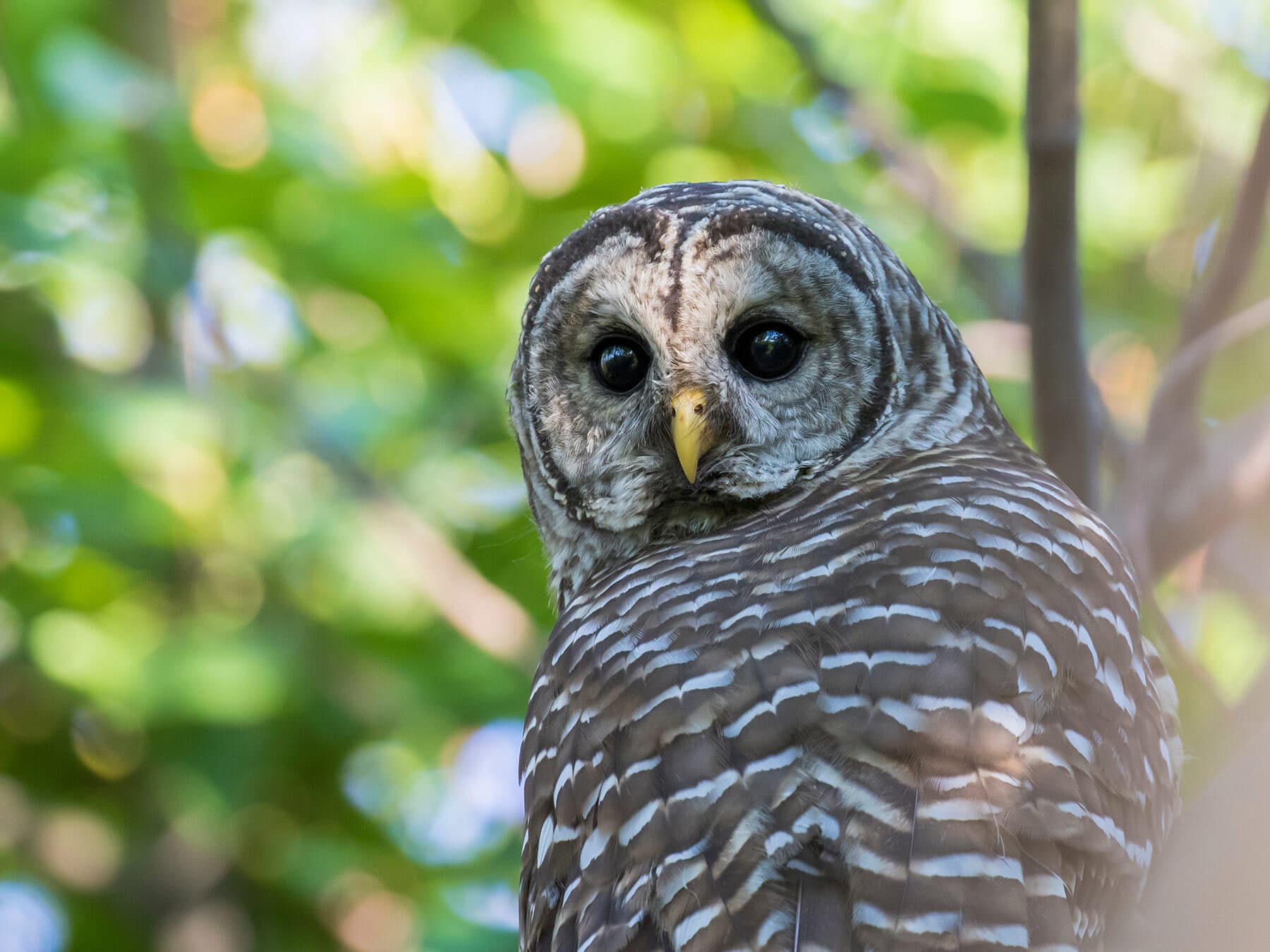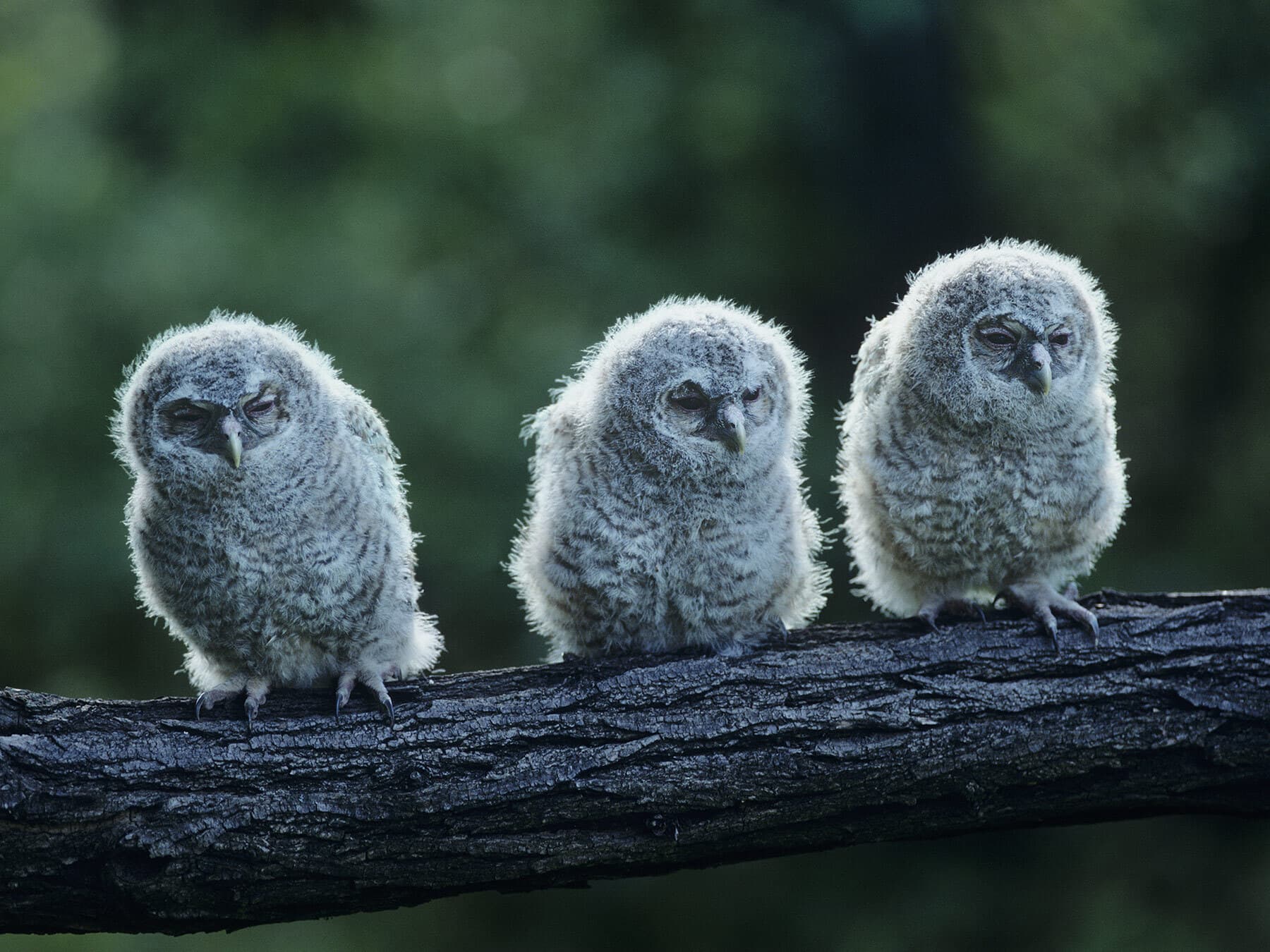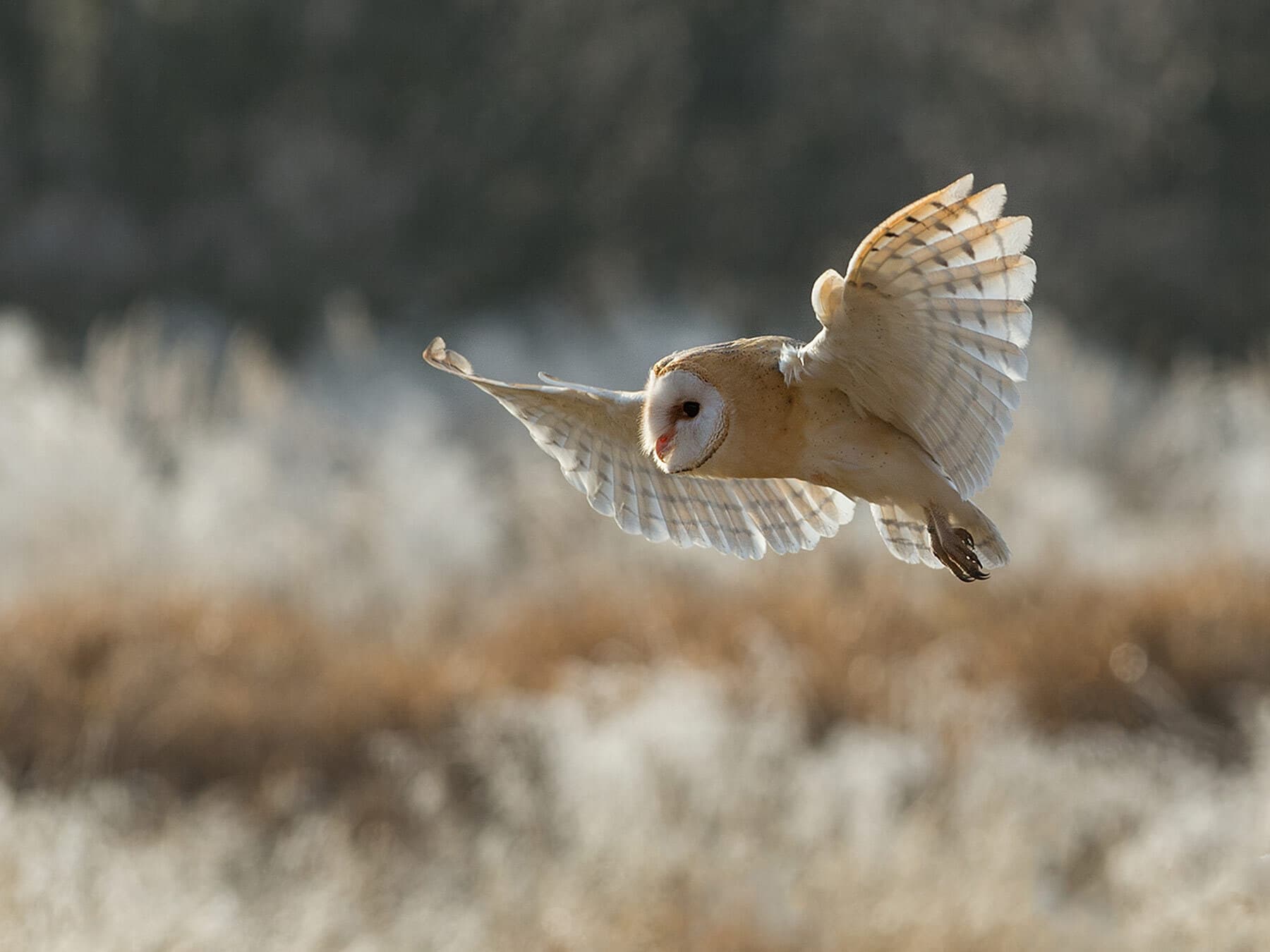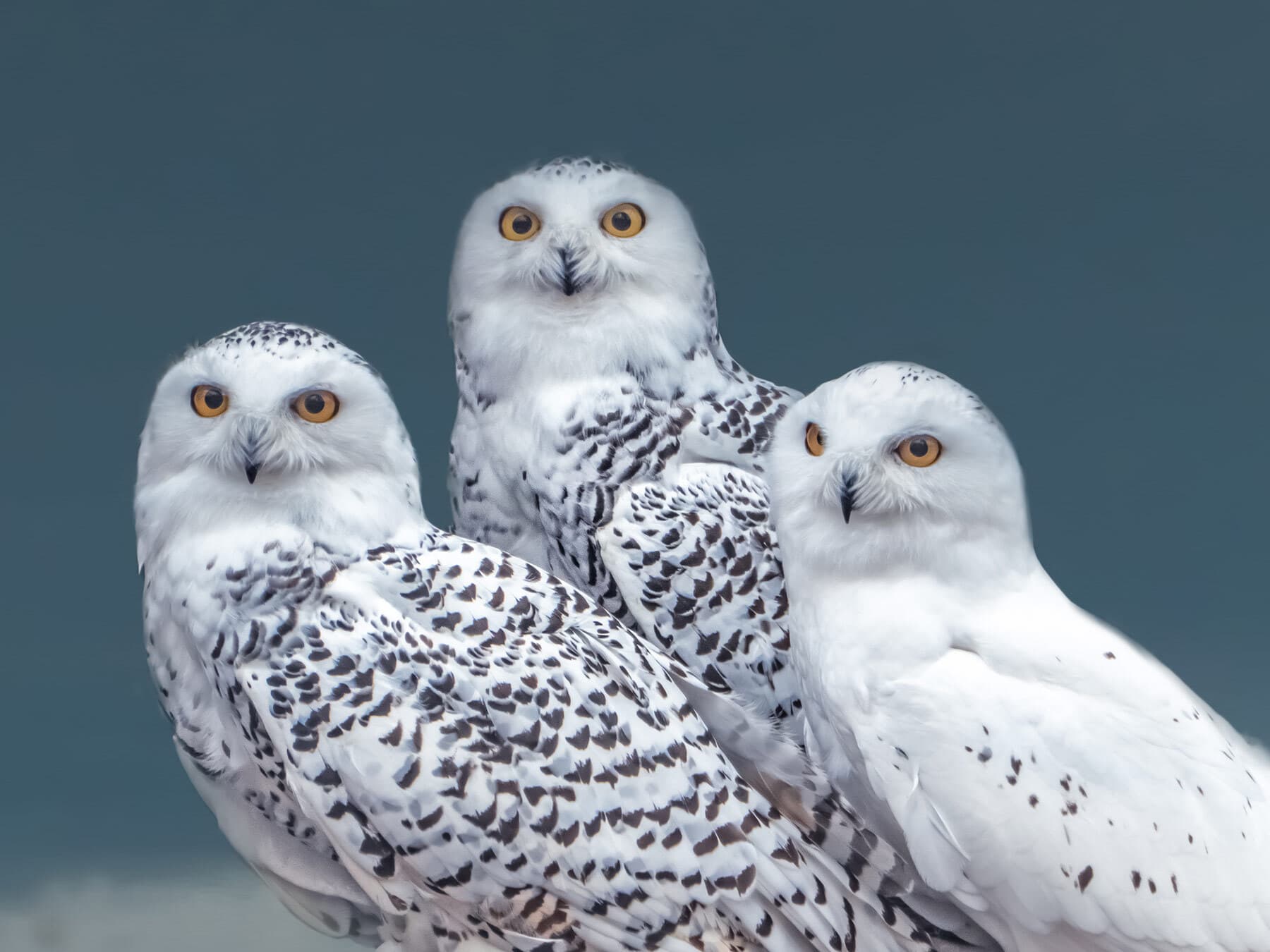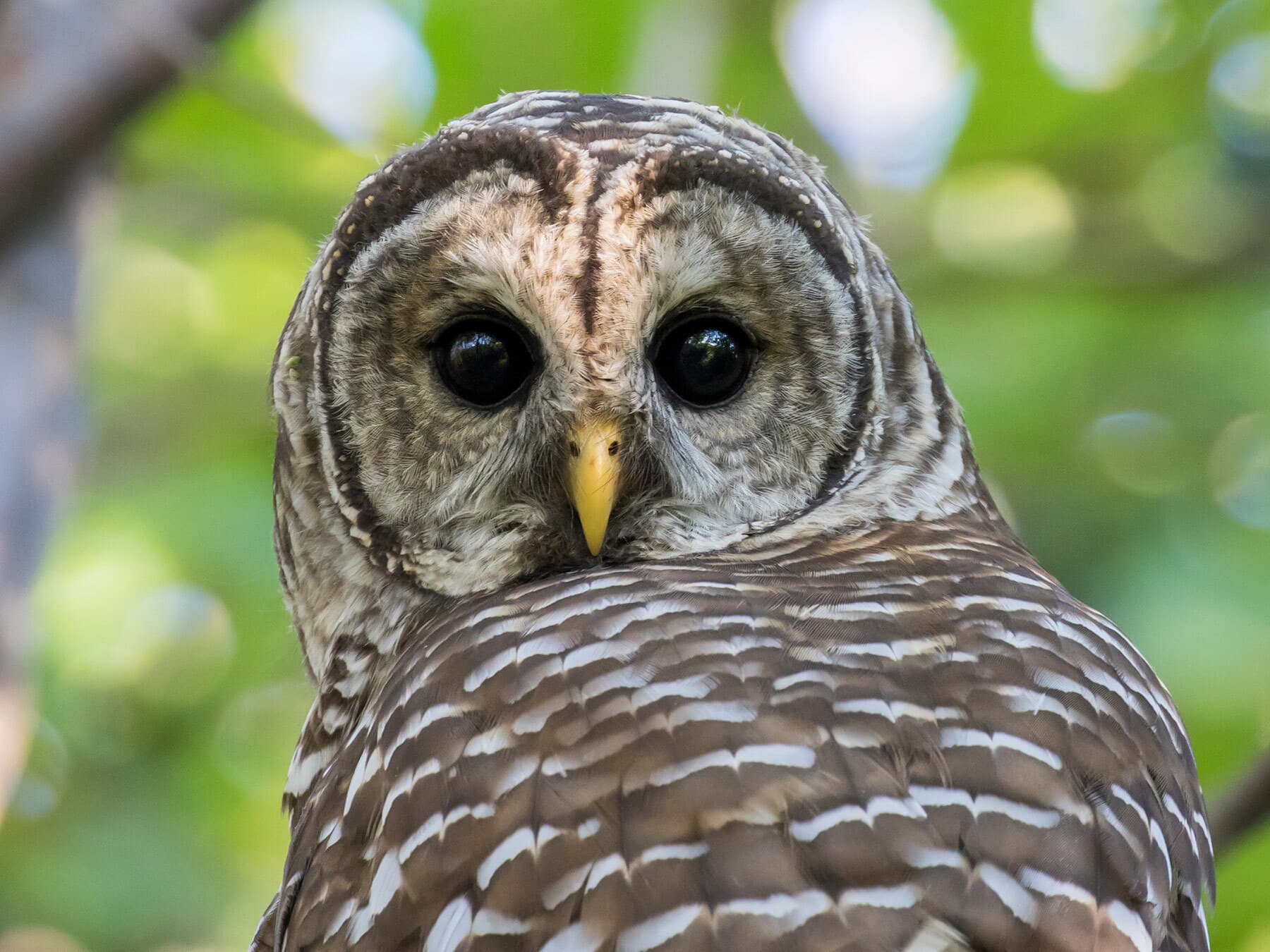
From the Journal
Barred Owl Nesting: A Complete Guide
Barred Owls (Strix varia) are experts hunters, catching voles, mice, reptiles and even birds and taking them home to their young. But where is home for a barred owl? Where do they nest? And how many small beaks do they have to feed? Here’s a complete guide to barred owl nesting habits with all this information and more.
Barred owls like to nest high up and will find a suitable natural cavity in a tree about 20-40ft high. They will also use stick platform nests made by other birds, such as hawks, crows, ravens and even squirrels, and human-made nest boxes as well.
These owls have some very interesting nesting habits, as we’ll see throughout this article. Like many owls, they are opportunistic in their nesting habits but cautious at the same time.
Barred owls may keep watch over a potential nesting site for up to a year before finally calling it home. They have one brood a year, so the nesting site must be perfect and safe. They ensure that an old nesting site is no longer in use and watch for any potential predators that could steal their eggs.
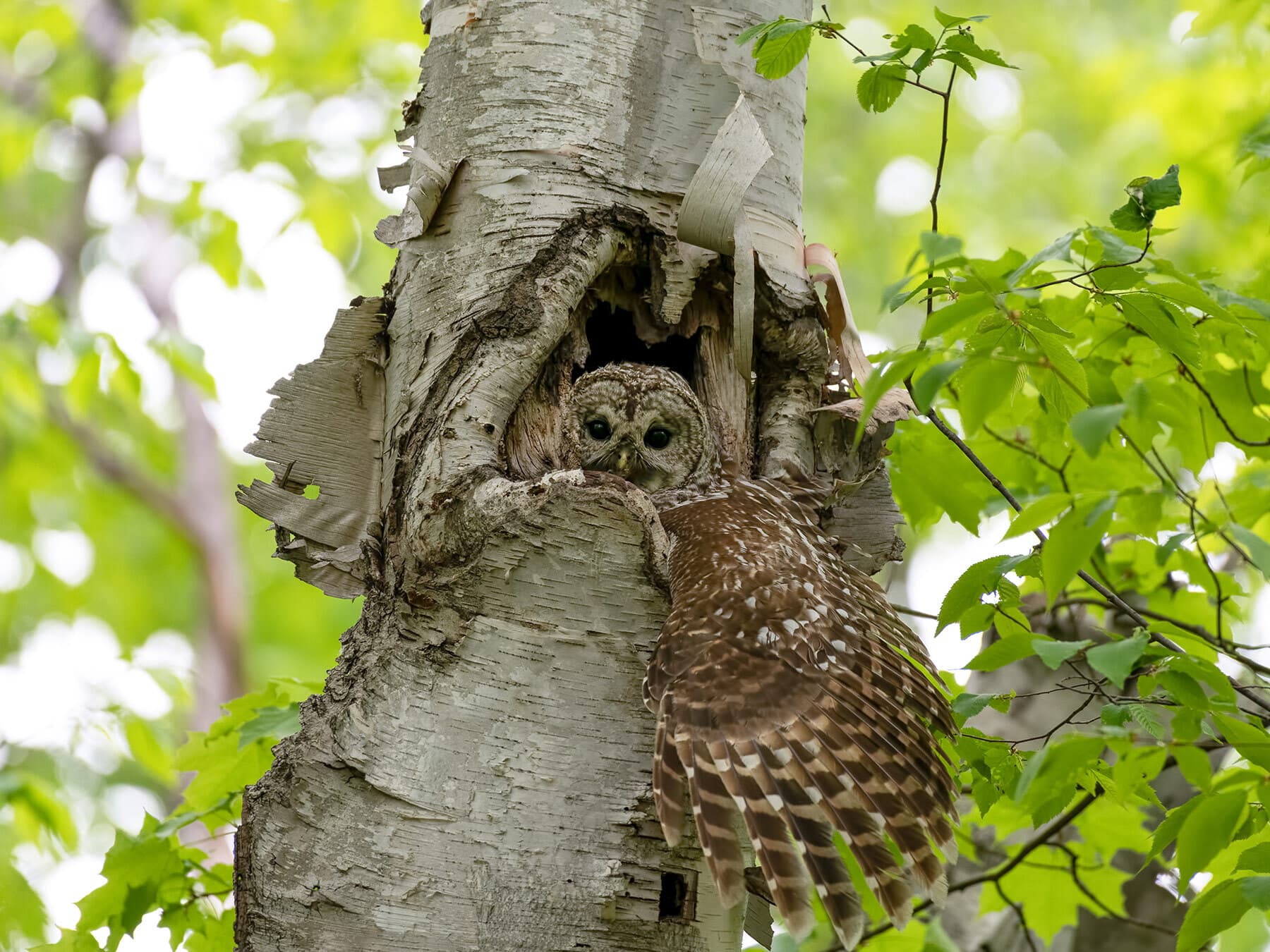
Where do barred owls nest?
Barred owls like to nest high up in trees. They will usually find a large cavity in a tree about 20-40ft high. They have been known to use the nests of other bird species, too, though. They will happily use a stick platform nest that hawks, crows, and ravens build.
However, Barred Owls typically don’t build a nest themselves. Instead, they prefer to find a hole or cavity in a tree.
What kind of trees do barred owls nest in?
Barred Owls typically choose cedar, fir, spruce and pine trees to nest in.
These owls are most often found in old-growth forests. This is because they like to find large cavities in trees to nest in, and older trees have more natural holes in them. They like a tree to have plenty of dense foliage to protect themselves and their babies.
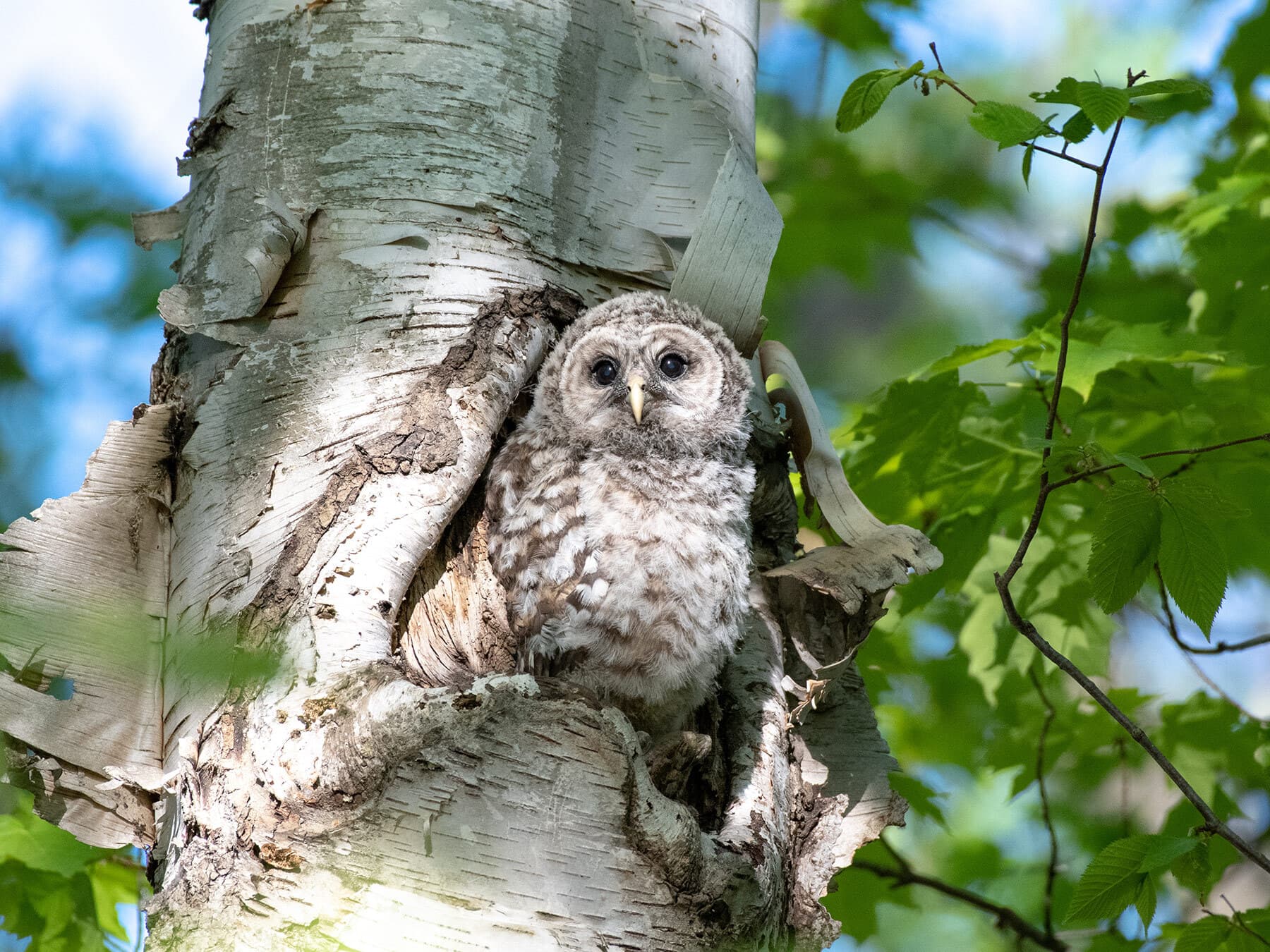
Got a photo of a bird you can't identify?
Upload a photo and find out what it is in seconds — no account needed
Identify a BirdWhat time of year do barred owls nest?
Barred owls flirt all year round, but the actual courtship business starts in February. Breeding takes place anywhere between March and August. At which time, the owls will find a suitable nest for their family.
How long do barred owls nest for?
Barred owls will nest for as long as the babies need to grow up and leave to find their own territories.
Typically, barred owls will care for their young for about 4 months, which is longer than most owls. After this, the baby is full-grown, has its adult feathers and is ready to fly off and start a life elsewhere. The parents will leave the nest, but may return to it the year after.
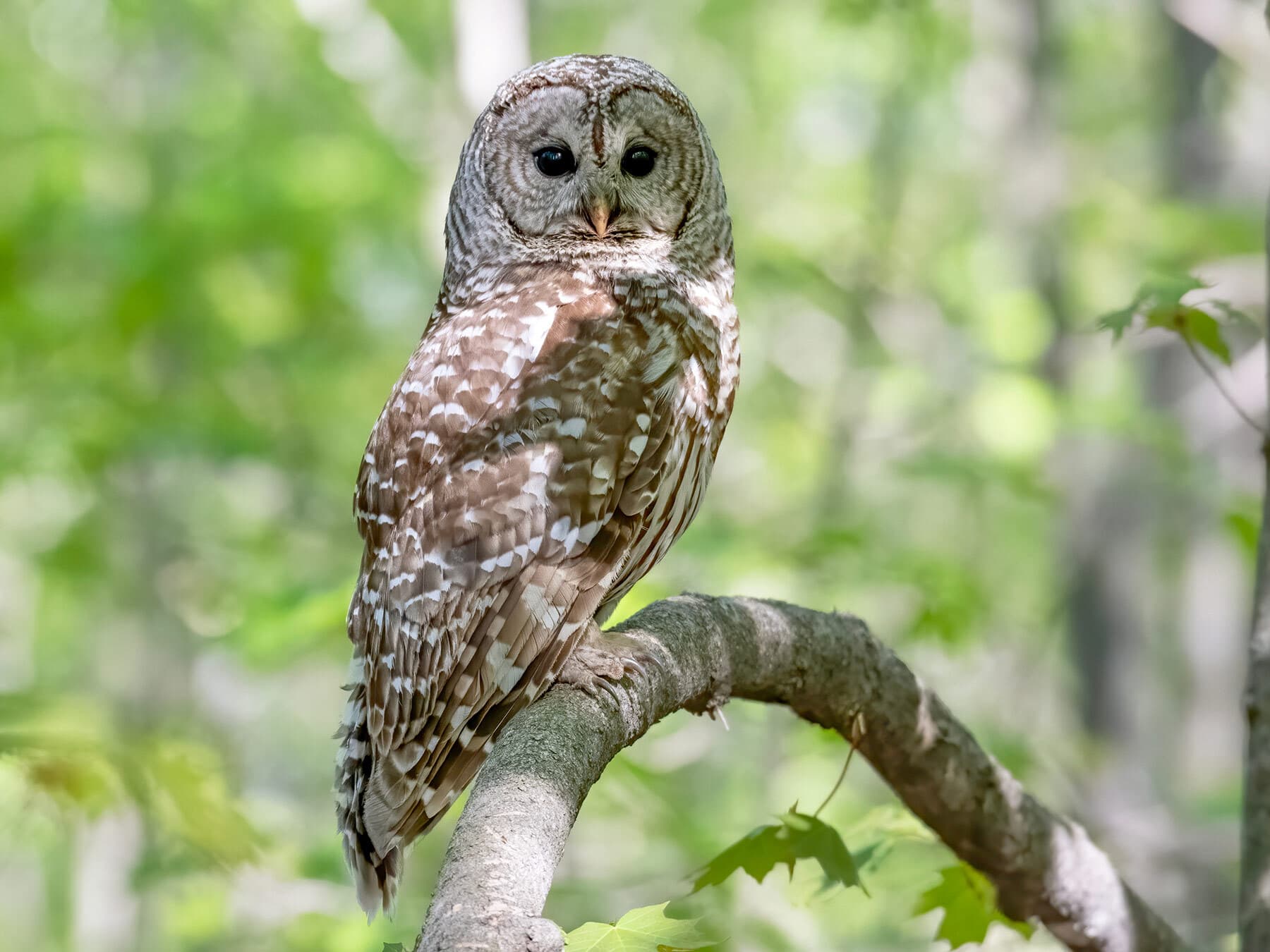
How do barred owls build their nests?
Barred owls, like many other owls, don’t tend to build nests. Instead, they will find a natural cavity in a tree, for example, and nest in there. If there is anything on the floor of the nest, it is likely just owl poop.
They will happily also take over nests from other birds and use these. So, if you see a barred owl in a nest, they didn’t make it; they are just renting it for the nesting season.
When do baby barred owls leave the nest?
Baby barred owls leave the nest after about 35-40 days but will remain with their parents up until they are 4 months old. Barred owls care for their young for much longer than most other owls.
However, after these fours months, the baby will look like the adults, know enough to hunt and survive on its own, and will go off in search of its own hunting territory.
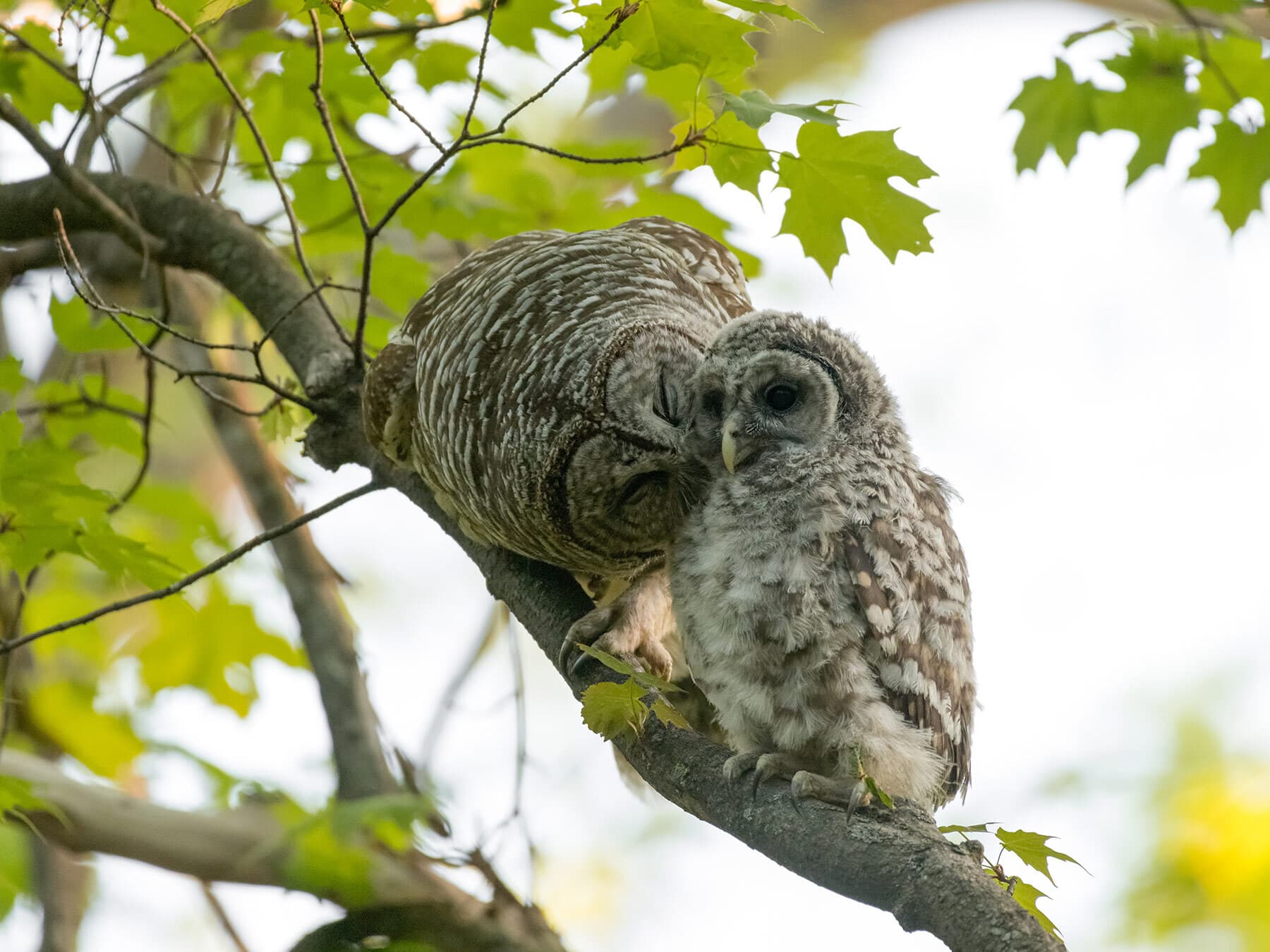
How many broods do barred owls have?
Barred owls only have one brood a year and lay between 1-5 eggs per brood - with the average being between 2 and three. However, if they lose an early brood, they can lay more eggs. They may even lay a third brood that year just to be sure.
The reason that barred owls usually only have one brood a year is that they spend so much time caring for their young. Barred owls take care of their young for about four months, which is longer than many owls.
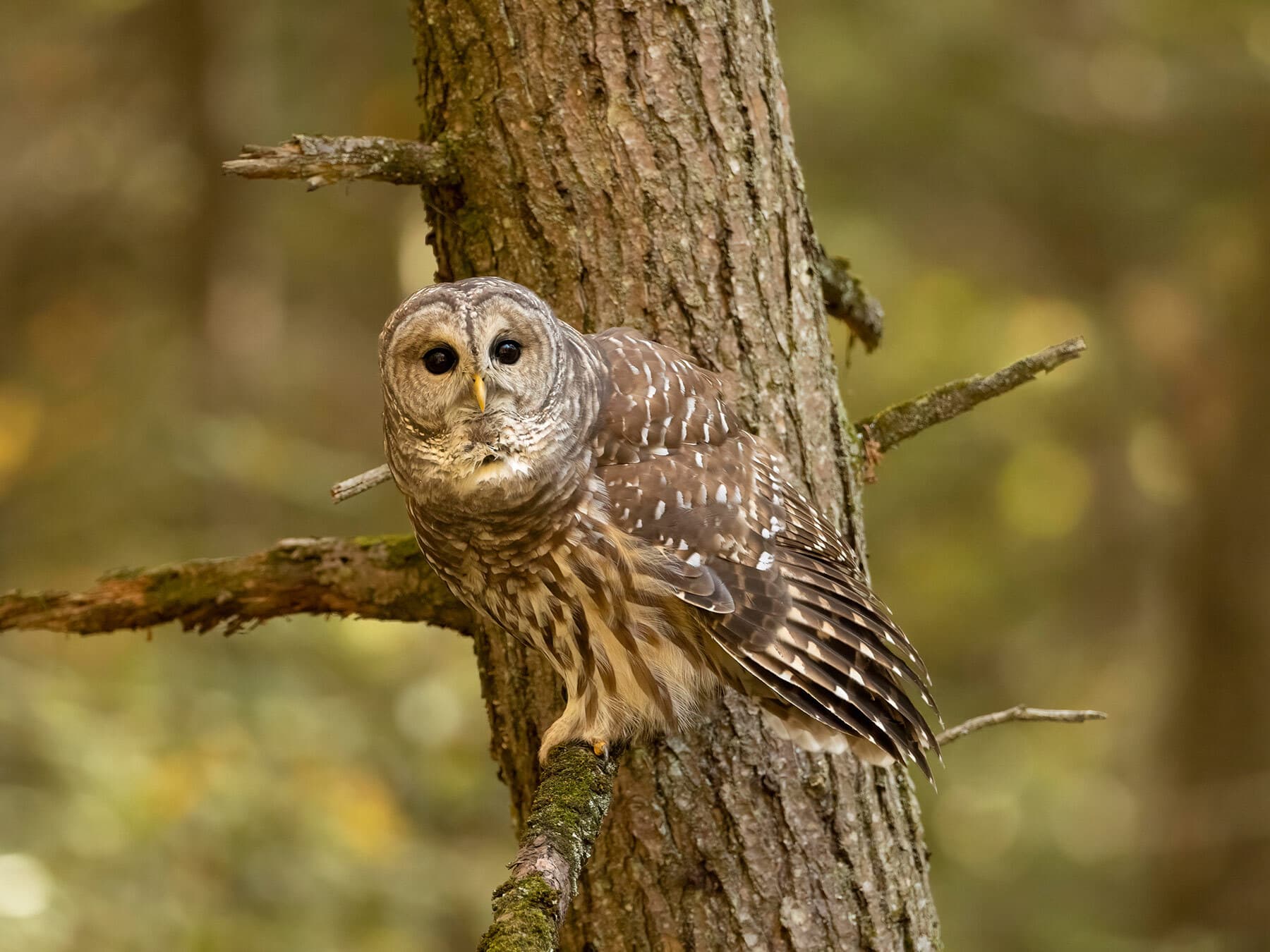
Do barred owls nest in the same place every year?
Barred owls will use the same mating area year after year and will nest in the same area as well. They may not use the same nest, though.
Barred owls are often quite opportunistic about nesting and will often seek out a pre-built nest from a different bird species. If that nest is back in use, they will find a suitable nest elsewhere.
What do barred owl eggs look like?
Barred owls lay large oval eggs that usually are around 50mm x 43mm in size, and weigh 45g on average. They are white and have a rough, granulated texture.
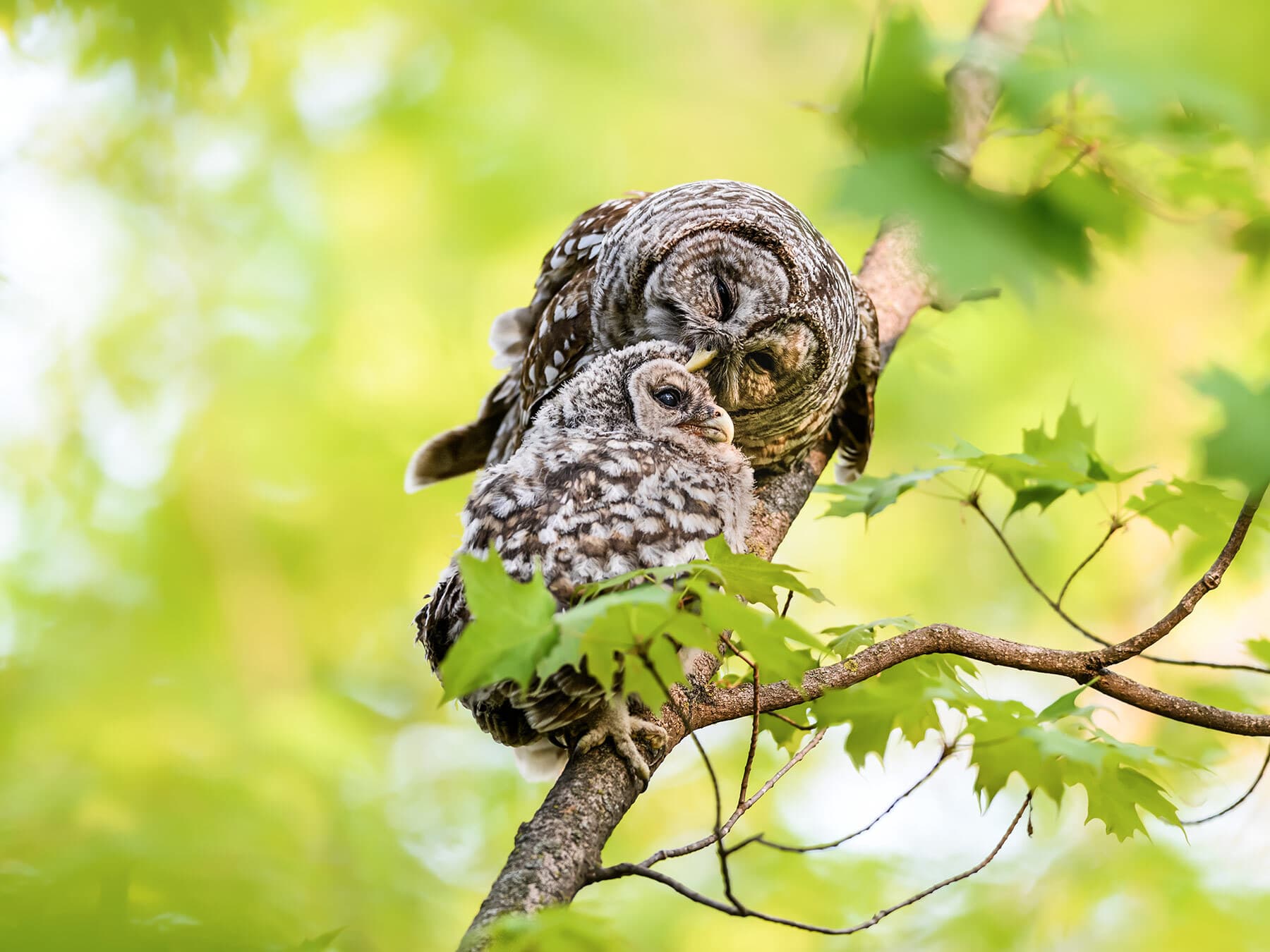
Will barred owls nest in a box?
Barred owls will happily nest in a box. These owls, like many others, will nest just about anywhere as long as they don’t have to build the nest themselves. The placement of the barred owl nest box is really important, though. They prefer nesting high up in trees, so you’ll need to locate it at least 20ft off of the ground.
Barred owls do like quite a large box to nest in, and while you can buy some boxes, people often make their own to ensure the owls have plenty of space.
Barred owls will often watch potential nesting sites for a year before they nest there. So, if you do put a barred owl nest up and don’t get many visitors, don’t get discouraged. The owls are cautious about nesting and may use it the year after.

How big is a barred owl nest box?
Barred owls like to have plenty of space in their nests. A typically barred owls nesting box is about 24 inches tall with a 7-12 inch entry hole. The floor area is about 13 by 13 inches, with a few inches of wood chips to protect the eggs.
While there are some barred owl boxes available to buy, many people make their own.
Identify Any Bird Instantly
- Upload a photo from your phone or camera
- Get an instant AI identification
- Ask follow-up questions about the bird
Monthly Birds in Your Area
- Personalised for your location
- Seasonal tips and garden advice
- Updated every month with new species
